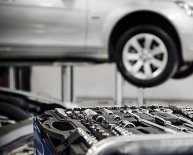
Car Tune up Costs
Before asking how much does a tune up cost, it would be more helpful to know what a tune up is and its importance. Technically, a tune up is a regular automotive maintenance that is recommended and scheduled by your automobile manufacturer. It employs several services to give your vehicle its optimal performance.
Whether you own a 4-wheel drive, an SUV or a truck, a regular tune up is always necessary for every type of vehicle. And most of the time, the manufacturers suggest that your car should have an engine tune up every two years or at an interval of 48, 000 kilometers.
According to Auto Service Costs, the average tune up prices varies from $150 to more than $1, 000, depending on the number of repairs and services your vehicle needs to have. Moreover, the procedure’s cost and schedule differ from one car model to another.
But CostHelper says that the standard car engine tune up cost averages between $200 to $800 that usually includes the following: 
– adjusting the car’s dwell
– changing engine oil
– checking the fuel, emission and ignition systems
– replacing air and fuel filters, distributor cap, PVC valve, spark plugs and wires
There are also instances when a complex tune up maintenance is needed, wherein you can spend within $500 to $900. Apparently, the expenses have already included the labor and the prices of the car parts to complete the work.
Although they are only rough estimations, there is actually no exact car engine tune up cost. Prices are flexible and may change according to the car manufacturer. Meanwhile, the tune up-related services given to the vehicle are based on the suggested mileage or year intervals.
Mileage from 3, 000 to 10, 000 Miles
How much does a tune up cost if you have a scheduled maintenance between 3, 000 to 10, 000 miles? The answer depends on the services needed for your car.
*Air Filter Change is suggested to be given every 10, 000 miles for a price of $20. Getting this service ensures that dust particles and other forms of microscopic dirt will not get into the vehicle’s system, preventing them from jeopardizing its performance.

















